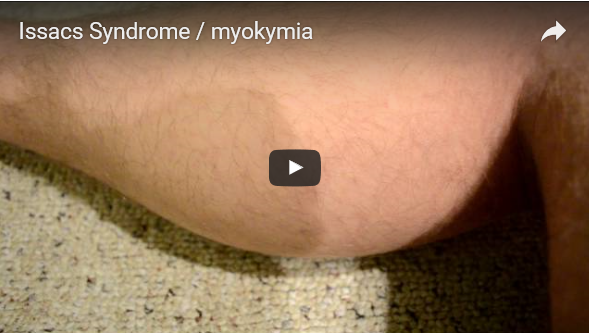The number of diseases that are cured by advances in medical care are increasing, but there are still many diseases whose cause has not been elucidated in detail and treatment methods have not been established yet. Isaacs syndrome is one of them. The number of patients is very small,but it is rare to heal completely once it develops
Relationship between Isaacs syndrome and VGKC
Isaacs syndrome is a disease in which symptoms such as muscle spasms and muscular rigidity, muscle picing and the like are seen in limbs and torso. Sometimes patients feel pain and numbness, which may interfere with everyday life.Symptoms include autonomic symptoms such as perspiration, changes in the color of the skin and high body temperature.
Although the cause has not been elucidated in detail, it is reported that thymomas are involved in some cases. In addition, because some patients have autoantibodies to voltage-dependent potassium channel (VGKC) which has a role to quench the excitement of nerves, it is thought that the function of VGKC has a relationship with this syndrome.
There is no cure to recover completely, but antiepileptic drugs that suppress excessive excitement of the nerve are used as symptomatic treatment. For patients who are positive for anti-VGKC antibody and have problems in everyday life, antibody removal by immunodepletion or immunotherapy may be performed. It has also been reported that administration of rituximab, an anti-CD20 monoclonal antibody used for treating lymphoma, is effective for Isaacs syndrome.
However, elucidation of the cause and treatment are still not sufficient.
Video by Justin Kincheloe
Detection of anti-CASPR antibody with Isaacs syndrome
The paper “Isaacs syndrome with CASPR2 antibody: A series of three cases.” published in April 2017 reported the cases patients with Isaacs syndrome have relationships with anti-CASPR2 antibody .
VGKC is known to form complexes with various molecules, and it has been reported that molecules targeted by autoantibodies are different for each disease. Among them, anti-CASPR2 antibody was considered to be involved in Isaacs syndrome.
This paper reports that anti-CASPR2 antibody was detected in three patients with Isaacs syndrome. One out of three cases had invasive thymoma. Although treatment with steroid, plasma exchange, rituximab administration was effective for patients who were positive for anti-CASPR2 antibody, it did not improve adequately. In two patients, the titer of anti-CASPR2 antibody was decreased in parallel with the effectiveness of treatment.
We are expecting further investigation of cause and establishment of treatment method suitable for individual.
Reference: Journal of clinical neuroscience



コメント